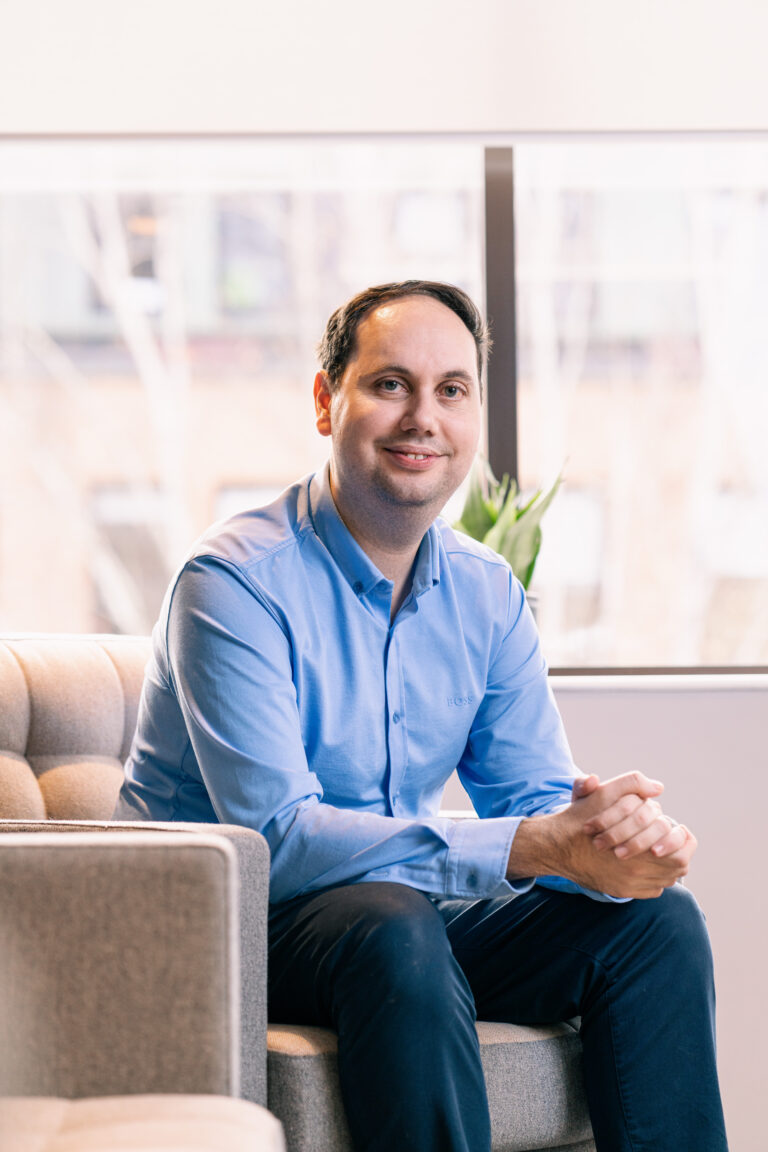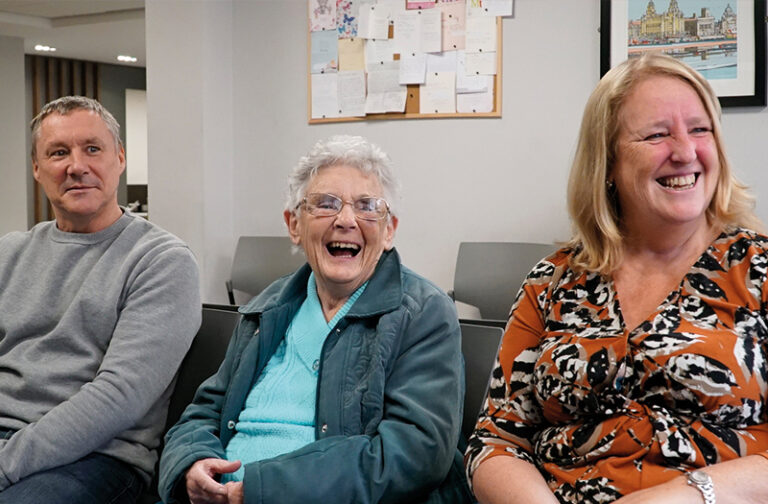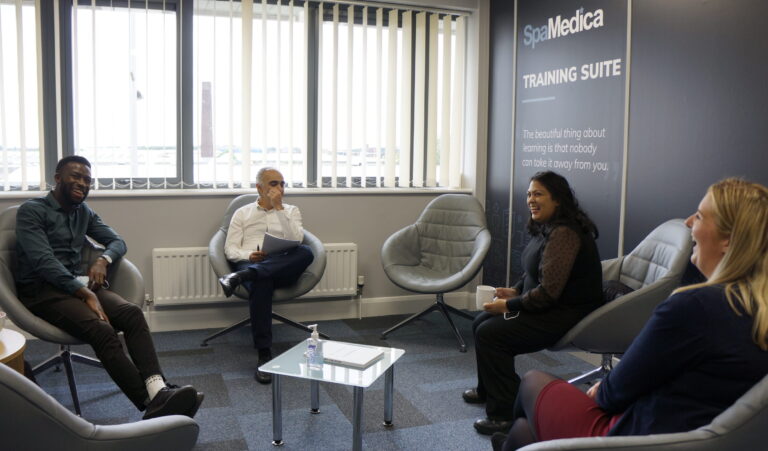
Cataract surgery training
Cataract surgery training is vital to help patients achieve good visual outcomes and lower the risk of complications developing during or after surgery. Good outcomes mean that patients benefit from better vision and an improved quality of life, and are therefore more likely to leave positive feedback for their surgeon and/or treatment provider.
SpaMedica delivers over 100,000 cataract surgeries each year, with excellent outcomes and low complication rates. As an industry leader, it’s important for us to support the training and development of surgeons across the NHS and private sector.
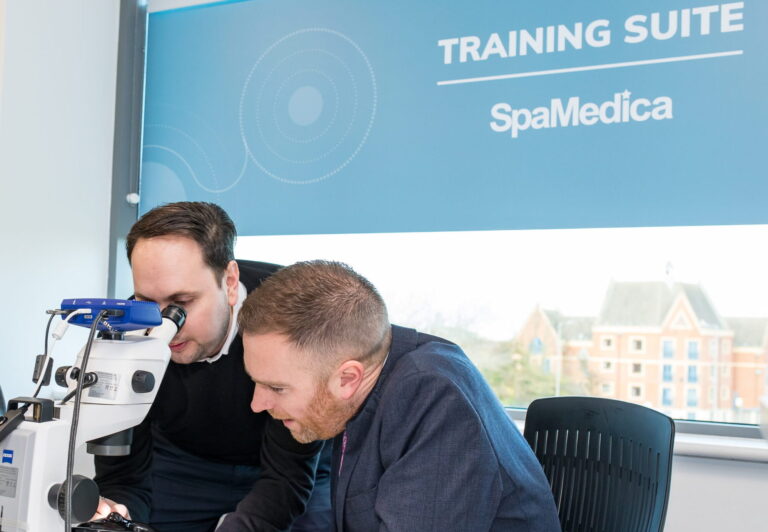
In order to achieve this, we’ve opened a number of regional training suites – equipped with digital dry labs and world-class technology – to help ST1-ST7 doctors develop and refine their cataract surgery skills.
SpaMedica’s first training suite, based in Widnes, was opened by Professor Bernard Chang, President of The Royal College of Ophthalmologists (RCOphth), in September 2020.
Since then, we’ve opened regional training suites in Wokingham, Stockton and Wolverhampton, along with pop-up mobile training units in Birmingham and Poole.
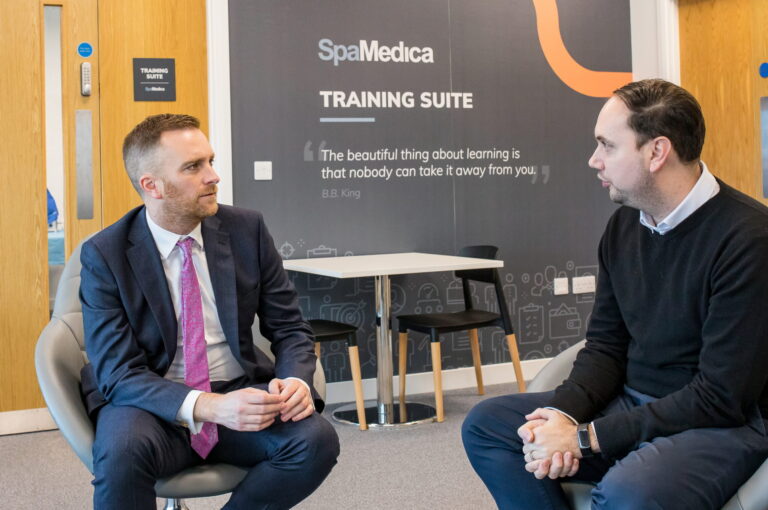
Training is conducted using synthetic model eyes that replicate the feel, texture and characteristics of a human eye with cataracts, along with surgical microscopes, all the instruments used in surgery and phacoemulsification machines.
This allows all trainees to develop microsurgical motor skills, hand-eye coordination, microscope controls and practice all the steps of cataract surgery.
Learning in this simulated environment helps improve performance and knowledge on surgical steps, reducing surgical time and complication rates and improving surgeons’ confidence.
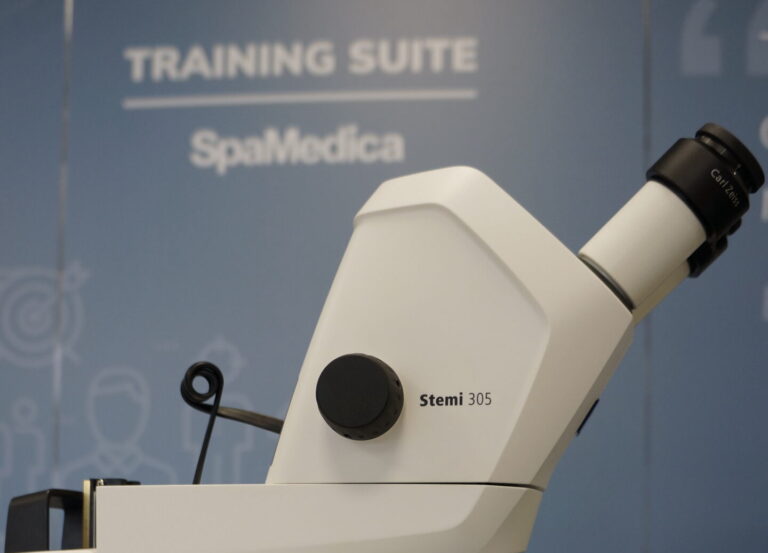
All the individual surgical training is recorded on iPads, and these recordings can be saved and reviewed with other doctors and mentors, as well as logged onto training records.
We look forward to expanding on these sessions in the future, training more surgeons and sharing our expertise and experience to drive improved quality and outcomes for all NHS patients.
